
views
Raj Nidimoru, and his partner-in-humour Krishna D K, will have completed a decade of making films together in Bollywood, exactly two months from now, in May (99 released in May 2009). Like other authentic writers and filmmakers, Raj is a perceptive listener, a keen observer and confesses that the idea for Stree germinated roughly 20 years ago from this day, while he was in his hometown. Call it serendipity or absurdity or a scene out of his films, in 2018, Stree, originally a small town myth about a crazed lady stealing babies at night, among many other wild theories that were circulating around, would, decades later, fetch him the biggest commercial success of his career.
“I used to see people writing on the walls-- ‘O Stree Kal Aana’ (in Telegu in his hometown) and think why nobody had an answer. This sat in my head for a really long time even while I studied in America, came back and made other films. I knew there was a crazy film there, but I was trying to get a point across. So I thought what if she (Stree) comes to take away men-- a woman ghost is hunting men.”
And the watershed change came here. As most of the movie-goers have figured out, Stree has strong feminist undertones and challenges gender stereotypes. For instance, a scene in the film shows discussions happening, as to, if men are to be safe, they should take women along with them.
Raj had this figured out as well. He says, “Then we suddenly got this idea of role reversal. We see that women are scared to go out at night in most of the cities in India. Now what if men are scared to go out at night, during a certain time, in this town (refers to Chanderi), and they are telling themselves-- don’t go out at night, come back home soon.”
“So all the notions that are otherwise being applied to women are now being applied to men. And suddenly we had a horror-comedy with a point. That is where we got excited and started writing the script.”
From 99 to Stree, Raj and DK have grown from strength to strength and, in their own right, seem to constitute the kind of cinema that is fresh, funny, absurd yet relatable. After critical acclaim that Shor in The City (2011) received, the duo went on to make Go Goa Gone (2013), Happy Ending (2014) and A Gentleman (2017), films with bigger budget and more popular faces of the industry.
Now, transitioning from offbeat/ independent to mainstream, commercial cinema ought to invite thinning down on certain aspects of the script for wider reach, which are not easy concessions to make for an artist, personally and professionally. But Raj argues that there was no dilution of content happening.
“We have stuck to our guns all along. Maybe it looked a little packaged in a couple of films because song and dance come inside, or there is a higher production value. But we have always stuck to the kind of humour, the kind of films, we wanted to make. Some work some don’t work but we did not dilute them to create a story that had nothing in it.”
“I also think that we were always commercial enough in our own heads. I was not making dramatic films that only a few people could enjoy. The problem was in getting people to see those films, because of budget, marketing or stars. And that is something that we had to battle all along.”
There are assumptions that filmmakers are particular about working in teams. As collaborative filmmakers, Raj and DK seem to have an upper hand over the ones that are unaccompanied on this rather solitary journey of realising a film. Raj explains how: “I am quite dependent on him (refers to DK). It (film) is a long process and if you have a partner, you know that there is somebody who has your back. He is your bouncing board. Mostly people find theirs in editors, producers or writers but not everybody finds a partner who is at an equal standing with them. I depend on DK’s creativity, sensibility, logic and perception.”
On being asked if he gets too reliant on his partner, or in case he suffers from writer’s block, he says, “It is a long process to write a film and sometimes you get bored. Sometimes you don’t want to touch that scene because your writing is mediocre. In that case, you can always dump it on your partner and tell him you write this. Fights, tiffs and disagreements are there, but it is awesome to just just go ahead and say I don’t want to do this part, you do this part.”
Raj and DK are in the running for Best Screenplay award for Stree in the upcoming Reel Movie Awards 2019, where they will have to outperform the screen writers of films like Badhaai Ho, Raazi, Mukkabaaz and AndhaDhun. Their film Stree is also nominated in the best film category.
About being nominated he says, “I think it is quite interesting that the focus of the awards is low-to-medium budget films. It is really going for content vs a popular award. I feel it is quite encouraging for films that are not big budget films.”
He adds, “Some films don’t have a great box-office run, but if awarded, there is some kind of a validation. It is like somebody, somewhere is telling that we have recognised you. Every filmmaker is making films to be acknowledged and he/she feels good when someone appreciates their stuff.”
Raj is an avid writer and takes time out to write almost everyday. He has a folder of project ideas stacked separately, which he refers to, time and again, for film scripts. Stree was one of them. His advice to upcoming filmmakers is to have originality and freshness. But, his supplemental tip takes the cake. He abbreviates it-- ‘BISFOK’ (Butt In Seat Finger On Keys).
Follow @News18Movies for more













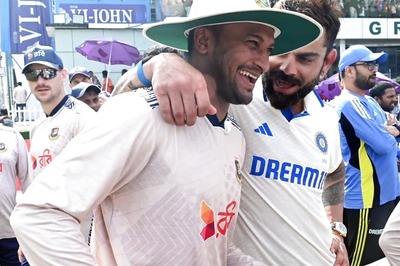

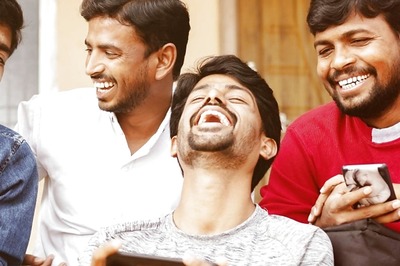
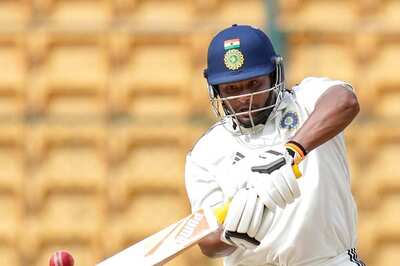
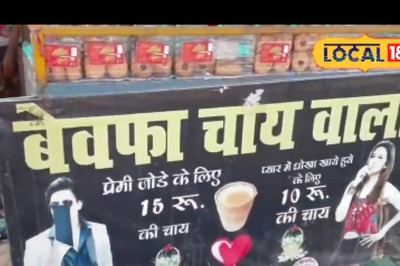
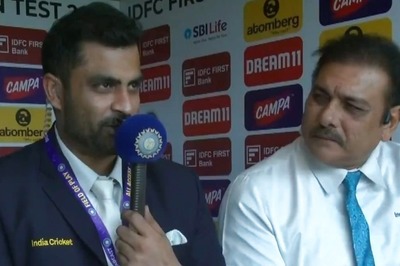

Comments
0 comment